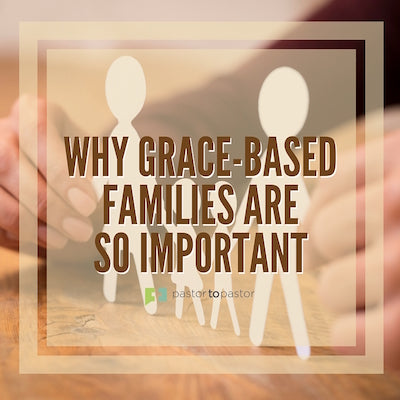 Like it or not, there’s a cause/effect connection between the relational health of the families showing up for church on Sunday and your church’s capacity to have substantive Kingdom impact.
Like it or not, there’s a cause/effect connection between the relational health of the families showing up for church on Sunday and your church’s capacity to have substantive Kingdom impact.
That’s why churches can’t be accidental when it comes to offering on-going training in the areas of marriage and parenting. When families are better equipped to take Jesus home, they’re far more likely to have homes that are havens of God’s love and joy and forgiveness, as well as positively impact their church and community.
But what should we offer them?
When my wife and I started out on our journey as parents, we decided to read the current Christian books on parenting. To be fair, we got some decent advice from them. But if we were to summarize what we felt they were really saying, they fell into two camps. They either propped up what I’d call “fear-based parenting” or they espoused “spiritual performance-based parenting”. The first was preoccupied with raising safe Christian kids in a nasty world and the second was about raising kids that passed some arbitrary Christian stink test.
Having worked in ministry with youth for many years, we knew that both of these plans fell short. It’s hard to raise kids who have a confident faith in a mighty God—a God who has everything under control—when our fears are framing our parenting strategy. Besides, God didn’t call us to raise safe kids; he called us to raise strong ones. And any church leader that has even a remote grasp of orthodoxy knows that spiritual passion doesn’t grow from adherence to some arbitrary checklist. It comes from heart-connection with Christ that is nurtured through tender heart-connection with parents. Performance-based parenting is little more than legalism on crack. If anything it is a recipe for rebellion.
We saw enough examples of high-control parenting, shame-based parenting, and laissez-faire parenting to know that they were bankrupt plans as well. We were convinced that God would not assign us this incredible responsibility without leaving behind a plan that could be executed by the average rank and file parent.
It was my wife who made the “aha!” observation followed by the game-changing question that led us to the heart of God’s strategy for raising kids. She said, “Think about this Tim: God is a parent. The “father” metaphor is the most popular one used about him in the Bible. We’re his children.” The game-changing question: “I wonder if we could study him in his role as a parent and apply his example and attitudes to our role as parents?”
As soon as she made that observation followed by that question, a parenting strategy leaped from the pages of scripture. As we started to quantify it and then implement it, it became obvious that it was a plan that truly reflected the heart of God. We decided to call it “grace-based parenting” since grace was the overarching feature of everything God was doing with us as his children.
When we create an atmosphere of grace for our kids to grow up in (just like Jesus creates for us), we meet the three core inner needs that every child is born with:
- A secure love
- A significant purpose
- A strong hope
There are four wonderful freedoms offered by grace-based homes that consistently bring out the best in our children:
- The freedom to be different
- The freedom to be vulnerable
- The freedom to be candid
- The freedom to make mistakes.
Parents can leverage God’s grace to build six key character muscles into their children. They are the muscles of:
- Faith
- Integrity
- Poise
- Disciplines
- Endurance
- Courage
And finally, where is this all headed? My challenge to parents is to aim their kids at what God would consider “true greatness.” True greatness is a kid that moves into adulthood with a passionate love for Jesus that consistently shows itself in an unquenchable love and concern for others. Parents are shown how to build four wonderful qualities of God’s gracious heart into their children:
- Humility
- Gratefulness
- Generosity
- A servant’s spirit
I can summarize grace-based parenting in one sentence: Grace based parenting is simply treating your kids the way God treats you. God doesn’t nag us, guilt us, shame us, compare us, insult us, yell at us, marginalize us, trivialize us, control us, ignore us, or write us off. He doesn’t get exasperated with us regardless of how exasperating we are. He simply loves us in a way that we desperately need but don’t deserve. Never throwing out the rulebook, or the consequences for poor choices, He sees our greatest potential and nurtures us toward that.
— Dr. Tim Kimmel is the author of the Grace Based Parenting series and the founder and Executive Director of Family Matters, whose goal is to see families transformed by God’s grace into instruments of reformation and restoration.
How to Use This Book
Grace Based Parenting is a 3-part series of small group Bible studies that provide the tools needed for a church to be able to offer this transformational plan to parents. It’s a study that will not only empower them and equip them as parents, but will enhance a much deeper relationship between them and God.

